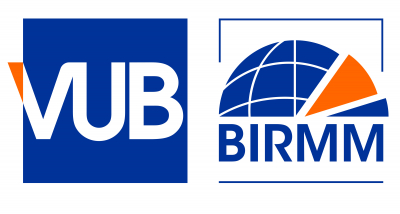Ongoing projects funded by the European Research Council (ERC) that are led by BIRMM members include:
This project focuses on examining the impact of borders on people's lives and identities through participatory filmmaking. Led by Kevin Smets, it explores how borders influence daily experiences, migration, and media practices. It involves creating and analyzing films produced with local communities along various borders, such as the Irish and Spanish-Moroccan borders, to capture the nuanced realities and emotional landscapes of these regions.
This project, led by Eva Ulrike Pirker, is a systematic, diachronic and comparative investigation of meritocratic narratives in literature. Meritocratic thinking manifests itself in powerful narratives across the globe, from the constitutionally embedded “pursuit of happiness” to neoliberalnarratives of self-enhancement. MERLIT investigates forms of these narratives, which are embraced for their seemingly empowering and universalist appeal, but also criticised for their enmeshment with structures of domination and privilege. MERLIT explores how meritocratic narratives are written, how they are written into cultures, but also how they are written back to in text forms that have shaped the zeitgeist of particular moments respectively.
MARIS: The main goal of the MARIS project, led by Pieter-Paul Verhaeghe, is to examine the interlinked patterns of different dimensions of racism and intergenerational social immobility at the level of societies as two of the most profound sources of exclusion in current-day societies are people’s ethnic and social origins. Racism refers to the historically grown beliefs and practices that systematically disadvantage some ethno-racial groups. It has been conceptualized and measured by different research traditions, which each focuses on another aspect of racism. Intergenerational social immobility refers to the transmission of parents’ socioeconomic positions to those of their children. Also here, there are different traditions to examine these positions. What both racism and social mobility research have in common, is that there is little interdisciplinary integration of their dimensions. This is a serious gap because each approach only covers a specific aspect and often yields different answers to basic research questions. Therefore, MARIS starts with a theoretical and empirical integration of four dimensions of racism at the macro-level: discriminatory behaviour, perceived discrimination, explicit attitudes and implicit bias. The macro-approach will consolidate the recent macro social turn in racism research and opens a new paradigm of research questions. In the same vein, I also integrate four dimensions of social mobility: social class, status, income and education. In the next step, MARIS examines the interlinked patterns of racism and social mobility at the macro-level. While racism and immobility are intertwined in people’s lives and I can theoretically expect four possible combinations of both sources of exclusion, previous studies tend to examine them separately. By combining both, this project bridges two long-standing research fields within the social and economic sciences. Lastly, I analyse varying levels of racism and mobility across countries and time by their links with macro-policies and recessions.
BIRMM researchers are involved in several policy-oriented BELSPO (Belgian Science Policy) research projects:
- REGUIDE - A Holistic, Restorative and Gendered approach to Guide Returnees to their Home country
- DIGIPOL - Digitalizing the police: internal and external challenges for the police organization in an inclusive society
- DIGICOJUST-2 - Military Violence and its (Dis)Contents in Colonial Congo: Sharing the Record, Writing the History
BIRMM researchers are currently coordinating or partnering in several SBO-FWO projects with a primary societal finality:
ENGINE - Tackling the EthNic Gap IN higher Education: this project aims to address ethnic inequality in Flemish higher education. It engages over 20 societal partners and 3 universitities (VUB - KULeuven - UHasselt).
From Camp to Campus: The research aim of “From Camp to Campus” is to develop an innovative ‘social investment approach’ for qualified refugees and newcomers through higher education.
Social well-being in Flemish primary schools: This research project aims to identify and tackle identity-based bullying in primary schools in Flanders.
BIRMM researchers are currently partnering in the following H2020 projects:
EqualStrength - From one closed door to another: The main contribution of EqualStrength is to investigate cumulative and structural forms of discrimination, outgroup prejudice and hate crimes against ethnic, racial and religious minorities from a cross-setting and intersectional perspective. EqualStrength is led by a consortium of ten European research institutions.
Mirre-M - Measuring Irregular Migration and Related Policies: Mirre-M aims to establish how different quantifications of irregular migration can address particular stakeholder needs, and map different indicators and estimates concerning the irregular migrant population and other migrants with an unstable legal status. MIrreM will also analyse trends and outcomes of regularisation policies and practices in the EU, US and Canada, exploring in particular views of different stakeholders and reasons for the (non-) implementation of regularisation in the past decade.
